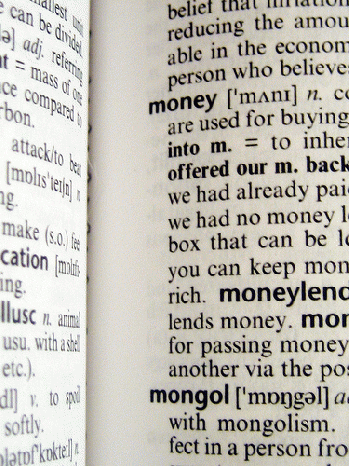In this third article of our series we will address the present money system that we live under.
A little history: Commitment and claims on commitment were evident in the structure of the split-tally stick-money system that was made official by King Henry I in England in 1100 AD, making them the only way to pay taxes. The system operated there until 1826, a little over 700 years. Analysis shows that the tally sticks were a form of mutual money.
The tally-stick system was weakened during the reign of Charles II (1660 to 1685), as he wanted money to salve his appetite for the good life and war. To do so he borrowed money from the bankers, and sold tally sticks at a discount, to repay the bankers who wanted their kind of money, not tally sticks.
Finally, after the organization of the Bank of England in 1694, formalizing bank money, the last tally sticks were burned at the House of Lords in 1834, setting fire to the building and destroying both Houses of Parliament. The Bank of England, which had gradually taken over the creation of money in England, was the model for our present money system.
Our system is quite different from the simple system described in the first and second articles in this series. It was finalized in its present form by the passage of the Federal Reserve Act of 1913, creating the Federal Reserve Bank, a private-for-profit monopoly.
The Federal Reserve Bank operates like a casino, with the Too Big To Fail Bankers representing the House, local bankers taking the part of contract-table operators, and the rest of us being forced to be the clients of this casino in order to trade and pay taxes.
In contrast to the simple system, here the chips (money) are created out of nothing (by fiat, ex nihilo, in Economicspeak) as loans by the banking system. However reflecting the fact that for every claim on commitment there is a corresponding commitment, in reality private bank money is a loan from the people using it, to the bank issuing it. This fact became evident when we taxpayers bailed out the Savings and Loans in the 1980s and 1990s, and the 'Too Big To Fail' banks in 2008, when they got into trouble.
When our present banks make loans, their only contract/commitment is to get the money back with interest, or get collateral pledged if the loan isn't paid. As loans are repaid, the money representing the principal is canceled as happens in the simple money system. However the interest was not created as new money, but it is a debt owed to the bank issuing the loan along with the principal.
This structure creates a situation where there is never enough money created to pay both principal and interest back to the banks when all loans come due. Remember, no money was created to pay the interest. As a result, one or more of three things has to occur.
1) The economy has to grow exponentially, so there is enough money in circulation to pay the interest; 2) There must be inflation, creating more money to chase the same amount of economic activity; and/or 3) Some members of the market have to declare bankruptcy, ceding assets to the banking industry, as they don't have enough money to pay either principal or interest, because others have used the only available money to make their payments.
This is why we are told by the banking industry and economists that growth is necessary. Growth is not necessary when the money system is properly structured. And growth, after market maturity, besides not being necessary, is not viable in a finite world.
Another problem with our present money is that the money supply is not self-regulating. It is regulated by the quantity of loans the banking industry makes. A principal cause of an over-heated bubble economy is when the banks make too many loans, increasing the money supply. A principal cause of recessions is when the banks don't approve enough loans to create enough money to make possible the trades that people, businesses and governments need to operate.
In all cases, the Too Big to Fail Banks, the House in our casino metaphor, come out ahead. In the growth economy they gain through interest. In the recession economy they gain by taking ownership of assets pledged.
Money capital and profit in the present system
There are three classes of capital. Money capital, natural capital and human capital. Here we will address money capital, and profit, which is associated with money capital. Natural and human capital will be addressed later.
(Note: You can view every article as one long page if you sign up as an Advocate Member, or higher).





